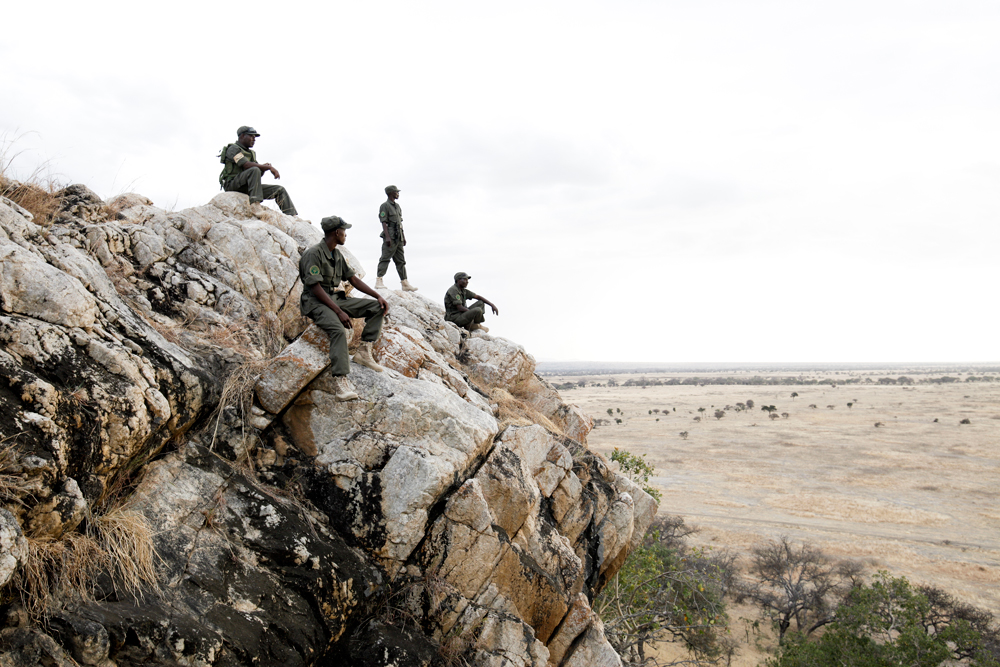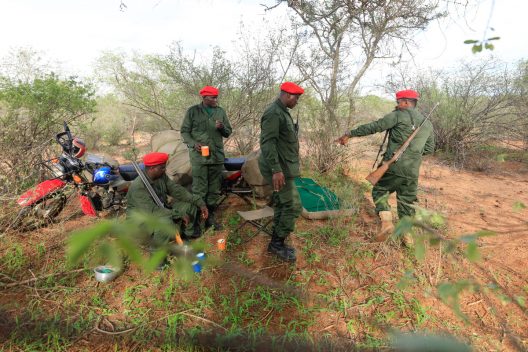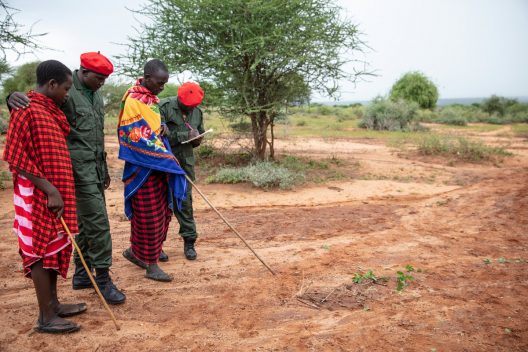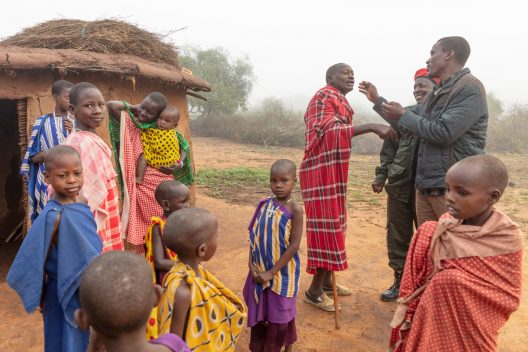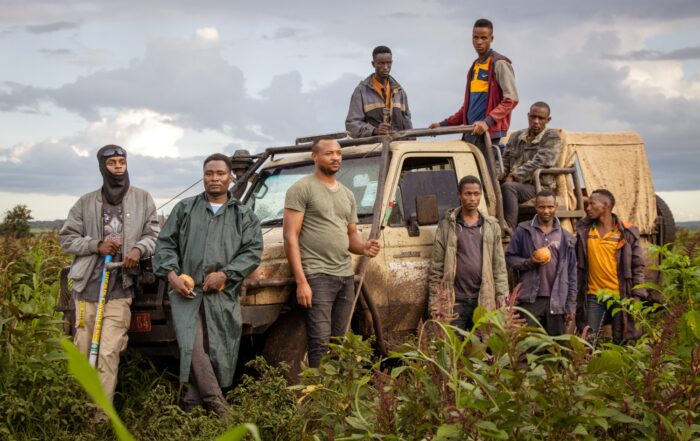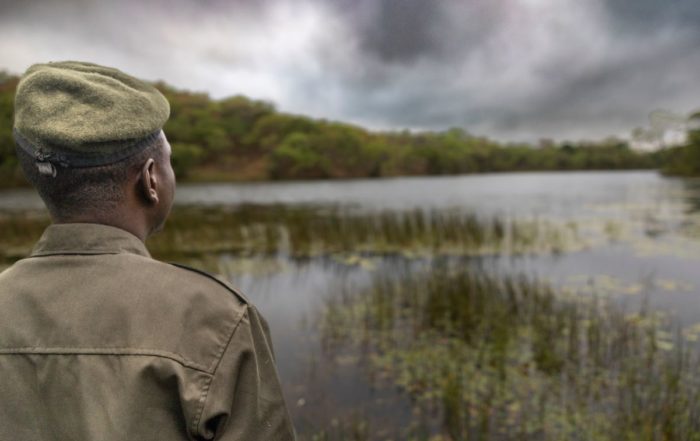Wildlife & Habitat Protection
Protection is frequently the largest expense in protected areas—as much as 60 percent of the operating budget in some places. Because of this, Honeyguide recognizes that creative solutions are needed if community-owned conservation areas are to maintain financial sustainability. Honeyguide advises community conservation areas on how to cut costs without compromising performance—by utilizing the presence of community members, who provide actionable intelligence to rangers that are highly trained in investigating crimes such as poaching and deforestation. In order for this to succeed, communities must receive tangible benefits from local conservation, thereby motivating them to serve as the “eyes and ears” of protection.
Local Intelligence
Fire departments do not send people to drive around looking for fires—when someone sees a fire raging, they call for help. At Honeyguide, we see wildlife protection working in the same way. When communities see poaching as a direct threat to their livelihoods, they have an incentive to call for assistance in stopping it. By bringing tangible benefits to communities, local conservation can become something that communities want to protect and participate in. This reliance on local buy-in has proven itself overwhelmingly effective: 99 percent of all poaching-related arrests in Honeyguide work areas are the result of tip-offs from residents, and within three years these same areas have seen elephant poaching reduced to zero.
“I have worked my entire life in wilderness areas trying to protect the animals and work well with people,” said John Magembe, Honeyguide’s head trainer and anti-poaching commander. “It is what motivates me every day.”
Village Game Scouts
Village Game Scouts (VGS), better known by many as rangers, are responsible for protecting wildlife, their habitat, and local villages by conducting patrols, acting on intelligence, and responding to requests for assistance. Honeyguide’s community-participatory approach allows community conservation areas to maintain a manageable personnel size, a key factor in making operations financially sustainable. Despite their limited numbers—there are currently 69 stationed throughout Randilen, Makame, and Manyara—VGS are highly trained, highly equipped, and highly incentivized (e.g. bonuses for catching poachers), ensuring their impact is felt throughout the entire landscape for which they are responsible.
K9 Unit
Honeyguide established a K9 unit in October 2011 to provide operational assistance to multiple anti-poaching teams. Since then, these “dog detectives” have helped lead countless anti-poaching investigations in northern Tanzania, leading to arrests nearly every month; the dogs have gained such a formidable reputation that Tanzania National Parks (TANAPA), the Wildlife Division, the police and other agencies have requested their assistance. They have been involved in joint operations with both community and government ranger teams in nine national parks and community-based conservation areas across northern Tanzania, leading to major arrests of poachers and confiscation of ivory, bush meat, weapons, and other illicit items.
SMART Conservation
A strategy not informed by data and intelligence is no strategy at all. Honeyguide has adopted SMART conservation software and other innovative monitoring tools to help improve the performance of rangers in the field day in, day out. Using mobile technology, these rangers record key data on incidents, wildlife, their patrol movements, and much more. Honeyguide aims at having SMART rolled out in all areas that it supports, so that a full landscape strategy can be implemented and data can be shared among partners.
Wildlife Protection News
Innovation That Delivers: Small Ideas, Big Impact
They say necessity is the mother of invention, and for WMAs facing mounting challenges with limited resources, getting inventive was not a choice; it was a necessity. At Honeyguide, we never set out to
Doing More With Less
Boosting Efficiency in WMAs The Business of Community Conservation Community Conservation Areas (CCAs) are known by various names across Africa. In Tanzania, they are Wildlife Management Areas (WMAs); in Kenya and Uganda, they are
From Hunter to Guardian
How the EU-Funded KUWA Project is Changing Lives in Kisungule For much of his life, Saidi Alfani, a small-scale farmer from Magazini village in the Kisungule Wildlife Management Area (WMA) in Southern Tanzania, relied




